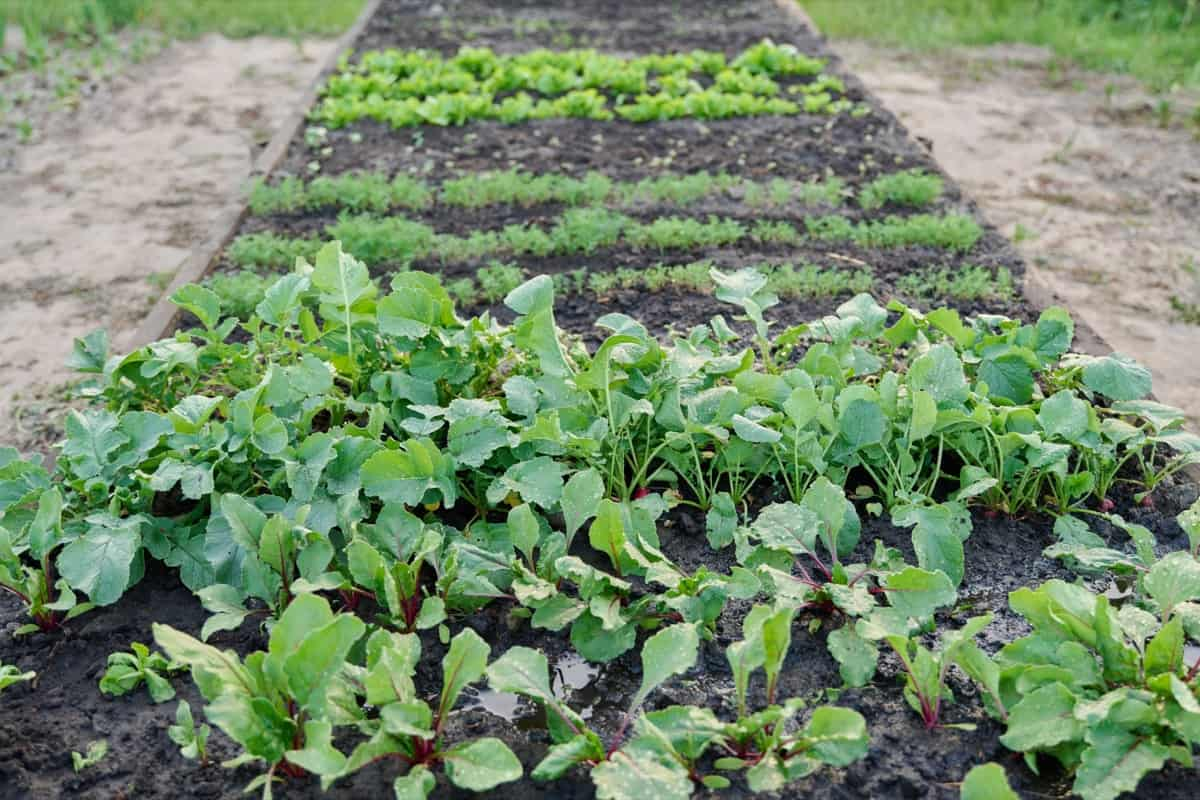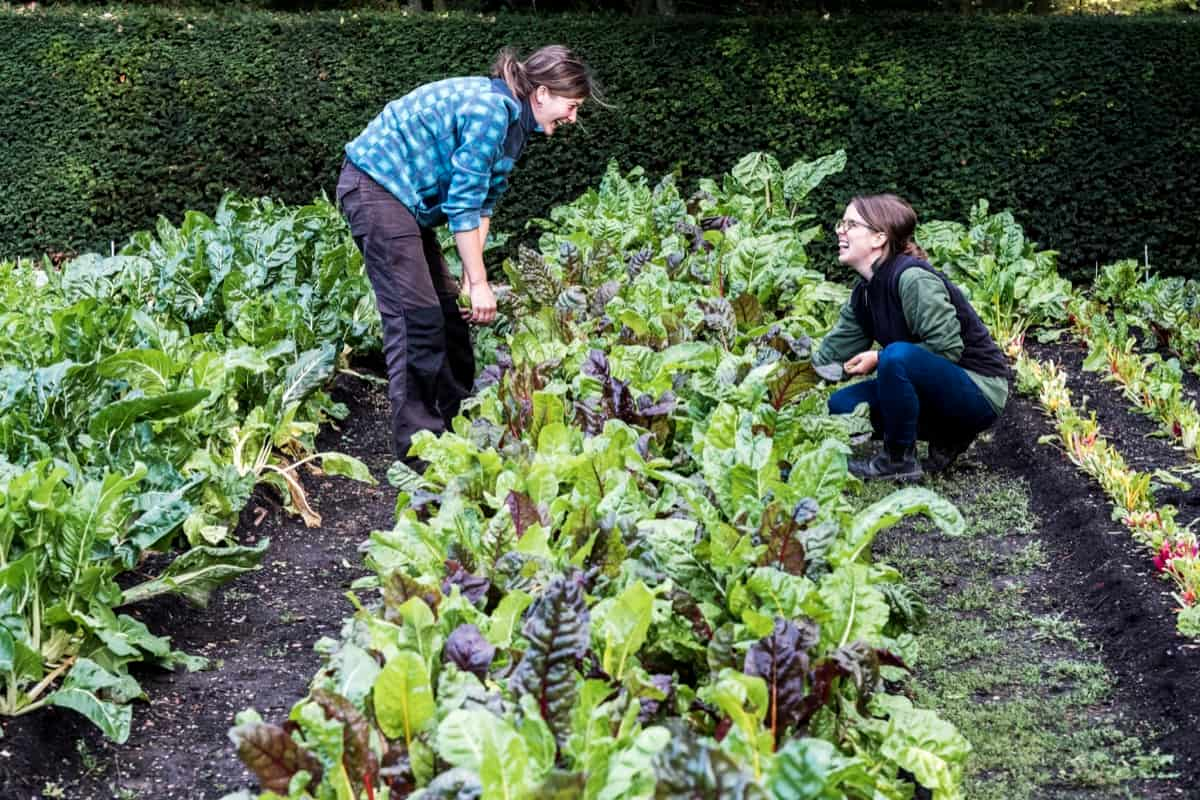New Jersey offers a diverse climate, prompting garden enthusiasts to ask, “When should I start my vegetable garden in NJ?” As the seasons change, so does the New Jersey planting calendar, affecting when you should sow your seeds. Understanding how long the growing season in New Jersey lasts when to start tomato seeds, and which fruits and vegetables thrive best are pivotal.

This guide dives deep into the optimal planting times, giving insights into the easiest vegetables to grow, the best flowers for the state, and even fall vegetables you should consider. By the end, you’ll be equipped to plan the planting calendar by zip code and ensure a successful harvest.
When to Plant Vegetables in New Jersey
Understanding New Jersey’s Climate Zones
New Jersey’s climate is primarily divided into coastal and inland zones. The coastal region enjoys a milder climate due to its proximity to the Atlantic Ocean. In contrast, the inland area has a more continental climate, with colder winters and hotter summers. These distinct climate zones are crucial in deciding when and what to plant.
Factors Affecting Vegetable Planting Dates in New Jersey
There are several factors to consider while deciding the vegetable planting dates in New Jersey. Soil temperature, for instance, is crucial. Some vegetables require cooler soil, while others need it warmer. Frost dates also play a significant role. New Jersey experiences its last spring frost between late April and mid-May and the first fall frost between late September and mid-October. This determines the length of the growing season, which is crucial for the success of various crops.
Planting Vegetables in Coastal New Jersey
For those residing in the coastal regions, the vegetable planting guide revolves around the moderating influence of the Atlantic Ocean. This means you can start earlier than in inland areas. For instance, when planting tomatoes in New Jersey’s coastal regions, gardeners can start their tomato seeds indoors in early March and transplant them outdoors by mid-April or early May after the risk of frost has passed.
Optimal Vegetable Planting Times for Inland New Jersey
In contrast to the coastal region, the inland areas require gardeners to be a bit more patient. Taking tomatoes as an example, those wondering, “When should I start my tomato seeds in New Jersey’s inland region?” should aim for indoors in mid-March and consider transplanting them outdoors in late May. The soil takes a bit longer to warm up, and the risk of a late frost is higher.
Vegetable Planting Schedule for New Jersey
The New Jersey vegetable planting guide offers a structured timeline for sowing and harvesting. Early spring is the time for frost-tolerant vegetables. By late spring, the soil warms up, accommodating various crops. The growing calendar adjusts depending on whether you’re in coastal or inland regions, and it’s beneficial to refer to a planting calendar by zip code for precise dates.
In case you missed it: Top 15 Apple Orchards in New Jersey: Best List of Apple Picking Spots in NJ

Recommended Vegetables for Early Spring Planting in New Jersey
Early spring is an excellent time for cold-hardy vegetables. Think of plants like peas, lettuce, radishes, and spinach. These are among the easiest vegetables to grow in New Jersey during this period. These crops can withstand light frosts and thrive in the cooler temperatures of early spring.
Late Spring and Early Summer Vegetable Planting Guide for New Jersey
As spring turns into summer and it gets warmer, it’s the right time to plant crops that thrive in the heat. Think of tomatoes, peppers, cucumbers, and beans. These vegetables require warm soil and consistent temperatures. Also, consider the best fruits and vegetables to grow in New Jersey during this time, such as strawberries, blueberries, and zucchini. As the season progresses, consider the fall vegetables to plant in New Jersey, including broccoli, carrots, and Brussels sprouts. This ensures you have a bountiful harvest as the colder months approach.
Fall Vegetable Planting Tips for Coastal New Jersey
In Coastal New Jersey, fall provides a second opportunity for garden enthusiasts to plant various vegetables. Given the milder climate influenced by the Atlantic Ocean, the coastal areas tend to have a slightly extended growing season compared to the inland regions. This advantage allows gardeners to sow seeds of quick-maturing crops like lettuce, radishes, and spinach by late summer, ensuring a fresh harvest throughout the fall.
Furthermore, hardier vegetables like broccoli, cauliflower, and Brussels sprouts can be planted in early fall, benefiting from the cooler temperatures and maturing perfectly for a winter harvest. Watching the weather is vital; while the coastal region enjoys a moderated climate, unexpected early frosts can still be a concern. Using mulch and protective covers can help maintain consistent soil temperatures and protect young plants from unexpected cold snaps.
Ideal Fall Planting Dates for Inland New Jersey
For the inland areas of New Jersey, fall vegetable planting requires more precision in timing due to the continental climate influence. Generally, the first frost dates for inland areas are earlier than their coastal counterparts. Gardeners should aim to plant fall crops by late summer to ensure they mature before the frost.
Fast-growing crops like arugula, turnips, and mustard greens can be sown early to mid-August. For those looking for a more extended harvest, considering root vegetables like carrots and beets is beneficial. These can be sown slightly later and tolerate light frosts, sweetening as the temperatures drop. Gardeners should always be prepared with frost protection measures like row covers, especially when unexpected early cold spells are forecasted.
When to Plant and What Vegetables to Grow in New Jersey in Winter
Winter in New Jersey might seem like a quiet time for gardening, but there are still opportunities for those keen on having a year-round harvest. The key lies in understanding which vegetables can tolerate or thrive in colder conditions. Garlic, for instance, is typically planted in the fall but grows throughout the winter, ready for an early summer harvest. Onions, too, can be set in the ground as winter approaches.
In case you missed it: When to Plant Peppers in New Jersey: How to Grow Bell Peppers, Hot Peppers, Banana Peppers, and Jalapenos

For immediate winter crops, consider kale, collards, and some varieties of lettuce that can withstand freezing temperatures if properly protected. Utilizing techniques like mulching, cold frames, and planting in raised beds can help insulate the soil, ensuring the plants receive the needed warmth. It’s also a good time to plan and prepare. While the ground might be too frozen to work, winter provides a perfect opportunity for gardeners to strategize for the upcoming spring, choosing which vegetables and flowers they’d like to grow and ordering seeds accordingly.
Vegetable Planting Schedule/Calendar Table for New Jersey
| Vegetable | Coastal New Jersey | Inland New Jersey |
| Spring Vegetables | ||
| Peas | Late February – Early March | Early – Mid-March |
| Lettuce | Early March | Mid-March |
| Radishes | Early March | Mid-March |
| Spinach | Early March | Mid-March |
| Broccoli | Early March | Mid-March |
| Summer Vegetables | ||
| Tomatoes | Mid-April | Late April – Early May |
| Peppers | Mid-April | Late April – Early May |
| Cucumbers | Mid-April | Late April – Early May |
| Beans | Mid-April | Late April – Early May |
| Blueberries | Mid-April | Late April – Early May |
| Fall Vegetable | ||
| Lettuce | Early August | Mid-August |
| Radishes | Early August | Mid-August |
| Spinach | Early August | Mid-August |
| Broccoli | Early August | Mid-August |
| Brussels sprouts | Early August | Mid-August |
| Winter Vegetables | ||
| Garlic | October | October |
| Onions | October | October |
| Kale | September | September |
| Collards | September | September |
In case you missed it: Best Container Plants for New Jersey (NJ): For Winter, Shade, and Full Sun

Conclusion
Regardless of the season, New Jersey offers diverse planting possibilities, both for the coastal and inland regions.
- Ultimate Guide to Ossabaw Island Hog: Breeding, Raising, Diet, and Care
- Ultimate Guide to Juliana Pig: Raising Facts, Size, Diet, Care, and Lifespan
- Raising Lleyn Sheep: Disadvantages, Price, Uses, Characteristics, and Care
- Ultimate Guide to Meishan Pig: Breed Facts, Breeding, Raising, and Care
- Ultimate Guide to Teacup Pigs: Raising, Diet, Lifespan, Cost, and Care
- Guide to Raising Poll Dorset Sheep: Facts, Profile, Characteristics, Uses, and Care
- Ultimate Guide to Bighorn Sheep: Characteristics, Diet, Lifespan, Breeding, and Lifecycle
- Ultimate Guide to Raising Katahdin Sheep: Farming Facts, Breed Profile, Uses, and Care
- Ultimate Guide to Raising Oreo Cows: Belted Galloways Farming Facts, Profile, Uses, and Care